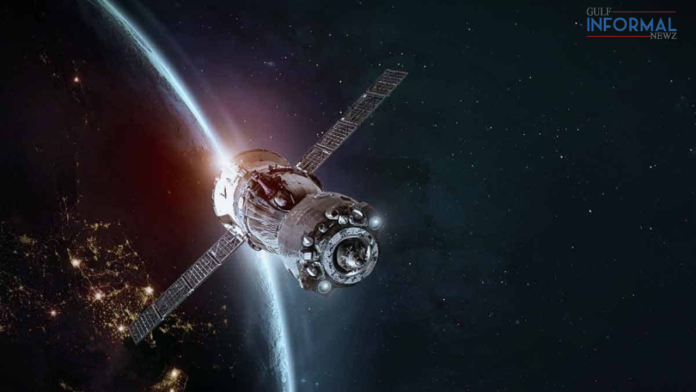The country’s strategic approach is also its commitment to achieving integration between various space sectors, such as AI-powered geospatial data solutions and space communications, and enhancing them through the transformative power of artificial intelligence.
Not long ago, a small group of major countries dominated the sectorouter space. Now, the rapid diversification and progress in new technologies, products and services; It is revolutionizing the old global space system, enabling other countries, most notably the United Arab Emirates, to chart a pioneering path to build and expand their sovereign space capabilities.
Today, it is common knowledge for countries to seek to develop a thriving space economy and is widely recognized as an important driver of economic diversification and technological development. As competition intensifies in the field of space, the quest to seize the opportunities provided by this sector is not limited to the UAE alone. However, what distinguishes it from other countries is its endeavor to harmonize and implement a multi-faceted strategic vision with tangible contributions from the public and private sectors.
A progressive, integrated approach to the space system
The UAE has established itself as a world-leading space power through its progressive and integrated approach, which focuses in particular on innovation, artificial intelligence and sustainability. It also established centers of excellence in the field of space, including the Emirates Space Agency and the Mohammed bin Rashid Space Centre, in addition to developing the National Space Strategy 2030 and establishing a national space fund worth 3 billion UAE dirhams (816.84 million US dollars), thus laying a solid foundation for achieving its ambitious goals. In the fields of space technology, science and research.
The country’s commitment to the space sector, driven by a clear understanding of its great economic and geopolitical potential, has been instrumental in developing the regional space sector, with AED 25 billion (US$6 billion) invested in developing advanced infrastructure, from satellite communications and Earth observation systems to transportation technologies. Pioneering data and even space exploration initiatives. These investments and the resulting technologies are evidence of the close cooperation between the private and public sectors.
Also Read: Kuwait authorities thwarted attempt to smuggle 1 million drug pills
In addition to the crucial role of financial investment in promoting growth and continuing to achieve the country’s ambitions in the field of space, the government has also clearly recognized the importance of facilitating the presence of the private sector in this sector. The government has pledged to support and accelerate the country’s space capabilities over the next decade, and has also committed to establishing several specialized economic zones throughout the country, as these zones will strongly support emerging companies and established companies in the field of space technologies alike as well to establish and manage their businesses in the UAE.
A strategic approach based on cooperation
Similar to the operating model followed by NASA, the state provides…The UAE The importance of establishing an integrated system that enhances cooperation between the public and private sectors in the space system. These collaborations are not only about sharing resources, but also about promoting innovation and challenging traditional institutions, which is a testament to the country’s commitment to global leadership in the space sector.
The country’s strategic approach is also represented in its commitment to achieving integration between various space sectors, including, for example, geospatial data solutions supported by artificial intelligence and space communications, and enhancing them through the transformative power of artificial intelligence. This harmony of core technologies is set to revolutionize space ecosystem models, which have traditionally been characterized by long development cycles and high barriers to new players. Overall, “democratizing technology” and facilitating access to it opens new horizons for innovators in the field of space technologies to work more efficiently and achieve a broader impact on a global level.
A prime example of this approach is the merger between two leading technology companies in the UAE: Bayanat, a company specializing in providing geospatial data solutions powered by artificial intelligence, and Yahsat, a company…
A pioneer in the field of satellite communications solutions. Upon completion, the merger will create “Space42”, the new leading AI-powered space technology company in the UAE, whose main business covers the Middle East and North Africa region with a global presence. “Space42” is an advanced model for a new player that is ideally positioned to contribute pivotally to developing space technologies and facilitating access to them through artificial intelligence.
With the rise of a stateThe UAETo new horizons in the field of space technologies, it is important to note that the state’s interest in this sector goes beyond the direct economic and technical benefits. By integrating key elements such as cutting-edge technologies, strategic partnerships and investments, the UAE is not only redefining the opportunities provided by the space sector, but also defining how this sector can directly advance the development of human knowledge and create a better, more sustainable future for all.




